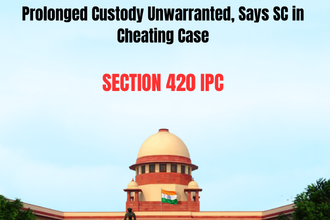In a significant verdict impacting public service appointments, the Supreme Court of India has rejected the plea of five candidates for the post of Civil Judge in Rajasthan who submitted their caste and category certificates after the cut-off date specified in the recruitment notification. The Court upheld the Rajasthan High Court’s decision, thereby reinforcing the sanctity of deadlines in recruitment processes.
The judgment, delivered on April 8, 2025, by a three-judge bench comprising Justices Abhay S. Oka, Ahsanuddin Amanullah, and A.G. Masih, came after a previous split verdict on the matter in 2023. The case is titled Sakshi Arha v. The Rajasthan High Court & Ors., Civil Appeal No. 3957/2023 (and connected cases).
Background of the Case
The appellants were candidates who had applied under reserved categories—Other Backward Classes (OBC), More Backward Classes (MBC), and Economically Weaker Sections (EWS)—in the Rajasthan Judicial Services Examination. Although these candidates had the requisite eligibility in terms of marks and performance, they were disqualified from being considered under their respective reserved categories because they submitted their category certificates after the last date prescribed in the recruitment advertisement.
As a result, they were considered only under the general category, where their merit did not suffice. Aggrieved by this disqualification, they filed writ petitions before the Rajasthan High Court, which were dismissed.
Split Verdict and Reference to Larger Bench
In May 2023, a two-judge bench of the Supreme Court—comprising Justices Ajay Rastogi and Bela M. Trivedi—heard the appeal. However, the bench delivered a split verdict:
- Justice Ajay Rastogi was in favor of granting relief to the candidates. He invoked Article 142 of the Constitution, which empowers the Supreme Court to pass any decree or order necessary for doing complete justice in any cause or matter. He opined that the appellants should not be denied appointment merely due to a procedural lapse, especially since they later obtained valid certificates.
- *Justice Bela M. Trivedi, however, held a contrary view. She observed that accepting certificates submitted beyond the cut-off date would amount to giving *preferential treatment to defaulters and would violate the principles of fairness in public employment.
Due to this divergence in opinion, the matter was referred to a larger bench of three judges, which delivered the final verdict on April 8, 2025.
Supreme Court’s Final Judgment: Key Takeaways
The three-judge bench upheld the High Court’s view, dismissing the appeals filed by the candidates. Justice A.G. Masih, pronouncing the verdict, observed that:
- The cut-off date mentioned in the recruitment notification was valid and binding.
- The appellants had not complied with the essential requirement of submitting valid category certificates within the stipulated time.
- The sanctity of procedural compliance in public appointments must be maintained to uphold the integrity and transparency of recruitment processes.
“Allowing such deviations would open the floodgates for exceptions in recruitment processes, thereby defeating the very purpose of uniform standards and equal opportunity,” the Court remarked.
Legal and Administrative Significance of the Ruling
This decision has far-reaching implications for competitive examinations and recruitment across public services. The key messages from the Supreme Court’s ruling include:
1. Strict Adherence to Deadlines
The ruling affirms that cut-off dates specified in government notifications are sacrosanct. No relief can be granted to candidates who fail to meet these deadlines, even if their certificates are later found valid.
2. No Preferential Treatment
Candidates cannot claim benefits of reservation unless they submit valid certificates within the specified timeframe. Permitting exceptions would amount to preferential treatment to defaulters, which is impermissible under constitutional norms of equality.
3. Article 142 Not a Tool for Bypassing Procedure
While Article 142 provides the Supreme Court with wide-ranging powers to ensure complete justice, the Court clarified that it cannot be used to circumvent procedural norms that are fundamental to fair recruitment practices.
4. Impact on Future Recruitment
Recruiting authorities across the country may now tighten enforcement of timelines, as the Court has given a clear mandate to uphold advertised deadlines. This also acts as a reminder for aspirants to be diligent in submitting all requisite documents within the stipulated period.
Comparative View: Past Judgments on Cut-Off Dates
In multiple rulings, the Supreme Court has consistently upheld the principle that eligibility and documentation must be completed by the notified cut-off date. For example:
- In Ashok Kumar Sharma v. Chander Shekhar, the Court held that belated certificates or qualifications acquired after the cut-off date could not be considered.
- In Rakesh Kumar Sharma v. State of UP, it was ruled that no relaxation could be granted for submission of documents post-deadline unless explicitly allowed in the recruitment rules.
The present ruling in Sakshi Arha case aligns with this established judicial trend.
Conclusion
The Supreme Court’s decision in Sakshi Arha v. Rajasthan High Court & Ors. reaffirms the importance of adhering to timelines in public recruitment and sends a strong message against procedural leniency. While the verdict may appear harsh for individual candidates, it upholds the broader principles of fairness, equality, and administrative discipline.
For aspirants in government and judicial services, this judgment is a crucial reminder: “Timely submission of required documents is not a formality—it is a fundamental requirement.” Failing to adhere to advertised guidelines can cost not just a job opportunity, but years of preparation and effort.


